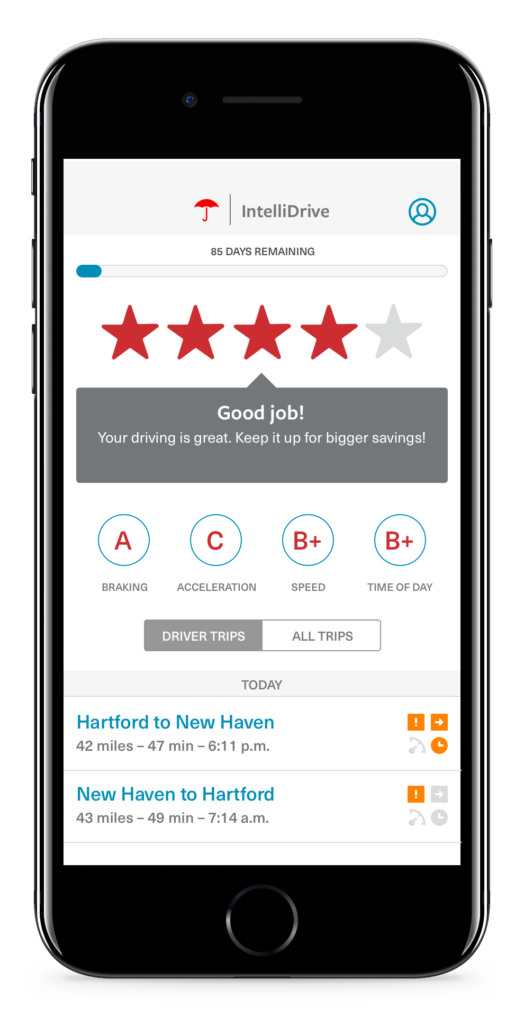What if I told you there is a surefire way to reduce auto accidents, and prevent a considerable amount of fatalities? You would be interested, right?
I would then tell you that this technology already exists, and that most drivers already have it in their pocket or their purse.
Of course, I’m talking about your smartphone. Your phone can probably check your heart rate, your blood pressure, and how many steps you take each day. It can also track your driving habits. Free apps can track your location, your speed, your acceleration and braking, and the time of day you drive.
If you have a mapping app like Waze, your phone knows where you are, and can help you avoid a traffic jam. In recent years, insurance companies have figured out that your phone’s GPS, accelerometer and gyroscope can help them determine if you are a safe driver. The current plague of distracted driving is resulting in more rear-end crashes. Insurers believe that if you are slamming on the brakes frequently, you aren’t paying attention.
Before we go any further, I hear you. “Invasion of privacy! It’s my business how I drive!”
I know there are strong opinions about privacy issues, but let’s be honest. This is the age of surveillance. From our front porches, to just about every public building we enter, we are being watched. The surveillance is making us safer.
I recently wrote about auto insurance rates. When my previous insurer raised rates for no apparent reason, I switched insurers. I signed up with one of the companies that offers a discount based on the information they receive from my driving app. Basically, I’m betting on my family. If we maintain safe speeds, avoid hard braking and fast acceleration, and stay off the streets during heavy traffic periods, I will save hundreds of dollars a year.
However, if the app detects that I’m speeding, making harsh turns, sudden stops or fast accelerations, I will be charged more. Ladies and gentlemen, this is called “incentive.” I am being tracked for ninety days, and how I drive during this period will determine my insurance rates for years to come (this is a one-time program).
Do I even need to tell you that I’m being much more careful? As I write this, I’m about thirty days into the program, and so far I’ve earned all A’s. Bottom line: I’m paying more attention. I’m determined to be a better driver. It’s amazing what waving a few dollars at a guy will do for his driving.
A few days ago, I drove from Chattanooga to Nashville on a Sunday afternoon. On the way back, eastbound traffic on Interstate 24 just outside Nashville was blowing past me. My insurance agent had warned me that I would be “dinged” for exceeding the speed limit by ten miles per hour. So I was holding at a steady 78 MPH, and almost got blown off the road. Passing speedsters were sneering at me as if I were the Little Old Lady from Pasadena. Many were weaving in and out of traffic at well over 90.
Obviously, those speed demons were not participating in a driving detection program that will set their insurance rates. But…what if they were? Would they still be speeding and driving recklessly?
I can guarantee you that for ninety days at least, I’m a safer driver because there’s something on the line. There is a financial incentive. What if all of us, every time we start our car, knew that our insurance company had the authority to penalize us for dangerous driving? How many injuries and deaths would this prevent?
I know many Americans would oppose this idea. Perhaps they should speak to victims of dangerous drivers. We all know someone who has lost a loved one, or has suffered injuries due to the reckless driving of others. Does it alarm anyone else that our cars are equipped with more safety features than ever, yet traffic fatalities continue to increase?
We talk a good game about making our highways safer. We put up clever highway signs, and we ask our police officers to pull over a random speeder now and then. But are we really serious about slowing people down, and saving lives? Are we willing for our behavior to be monitored, like in elementary school? If it means potentially saving the lives of our children and grandchildren, I don’t know how anyone could say no. What about you?



